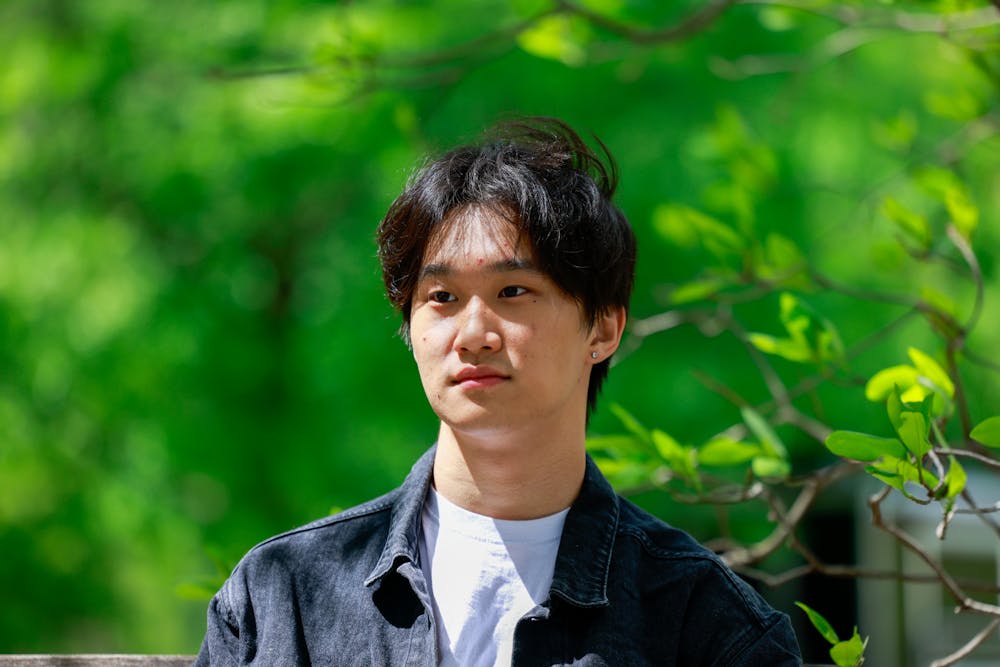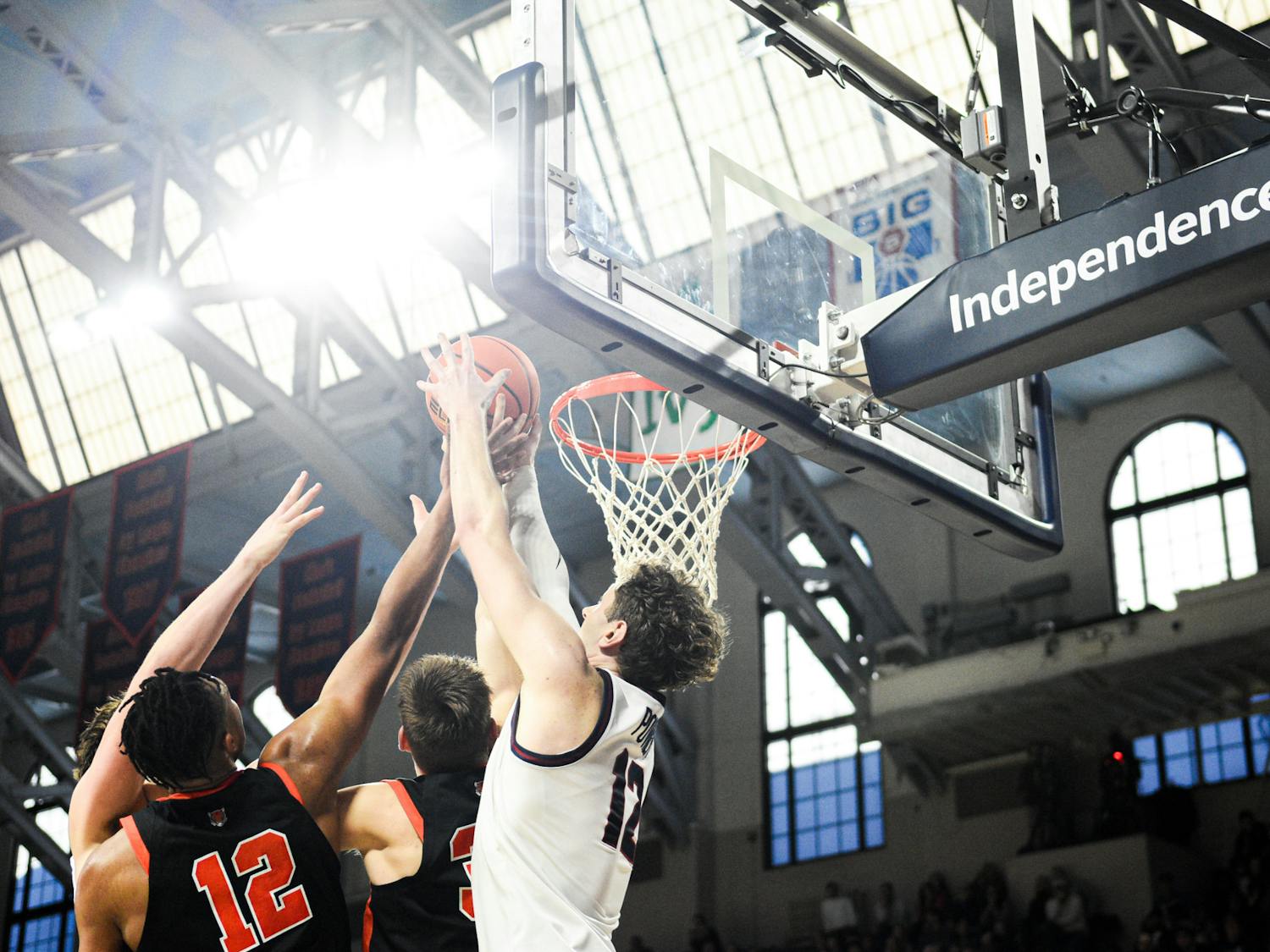Many of the greatest athletes of all time dreamed about becoming superstars in their respective sports from the time they were infants.
At the age of three, the late Kobe Bryant already desired to follow in his father’s footsteps and become an NBA superstar. Other all-time greats have followed a less conventional route, capitalizing on unique opportunities to engage with new challenges. Future NFL hall-of-fame linebacker Khalil Mack only started playing football in his senior year of high school after suffering an injury that would sideline him from basketball. It’s safe to say sophomore épée specialist Joey Wu of Penn men’s fencing falls into the latter category.
Growing up in Weston, Mass., Wu did not have much exposure to fencing at a very young age. At 13, a fortunate run-in with a national fencing coach from China, who started a new fencing club in his neighborhood, introduced middle-school-aged Wu to the sport that would change his life forever.
“I was one of the first people around him to join,” Wu said.
Wu remembers that in the beginning, the club didn’t have a formal fencing club or anywhere to train, so he’d practice fencing drills in my coach’s living room and would run around the neighborhood to stay in shape.
“I found [fencing] really fun because it was completely unlike any other sport I’d done,” Wu said, “It takes a special combination of physical and mental strength to succeed.”
Unlike many other fencers his age, Wu has only been training for six years. Regardless, he has excelled in épée competitions. The épée is the biggest and heaviest blade out of the three used in fencing, and matches in this form have their own particular style. Wu notes how épée is less burdened by rules compared to the other two styles — foil and sabre.
“I prefer épée because you don’t have to be thinking about keeping track of this right of way in your head all the time,” Wu said. “Instead, you can just focus on your timing because you can attack it anytime.”
Coming into his first year at Penn, Wu had to acclimate to the notably different collegiate fencing environment while navigating rigorous Computer and Information Science courses in the School of Engineering and Applied Science.
“Fencing is naturally a very individual sport,” Wu said. “But I feel like one thing that’s been really different since coming to college has been the team-focused dynamic. ... Although matches are individual, you have your team cheering you and relying on you. ... You win and lose as a collective. This necessitates a lot more of a commutative, community-like environment.”
After a promising freshman season, with a 62.8% winning percentage, Wu quickly established himself as one of the strongholds for the Red and Blue in his sophomore season, and strives to improve.
“In my sophomore year, I’ve been working on building consistency,” Wu explained. “I feel like consistency is really hard to achieve in fencing compared to some other sports because you aren’t doing repetitive patterns. Fencing is so dependent on reactions and your mindset.”
The highlight of his second year was, without a doubt, the Ivy League championships, which were held at the Palestra. The Quakers finished third behind runner-up Columbia and winner Princeton, and Wu earned a place on the second-team All-Ivy épée list alongside Penn teammate, freshman foilist Nicholas Jin.
“Being among the top handful of épée fencers in the Ivy League means a lot,” Wu said. “Next year, I am aiming to make the first team.”









